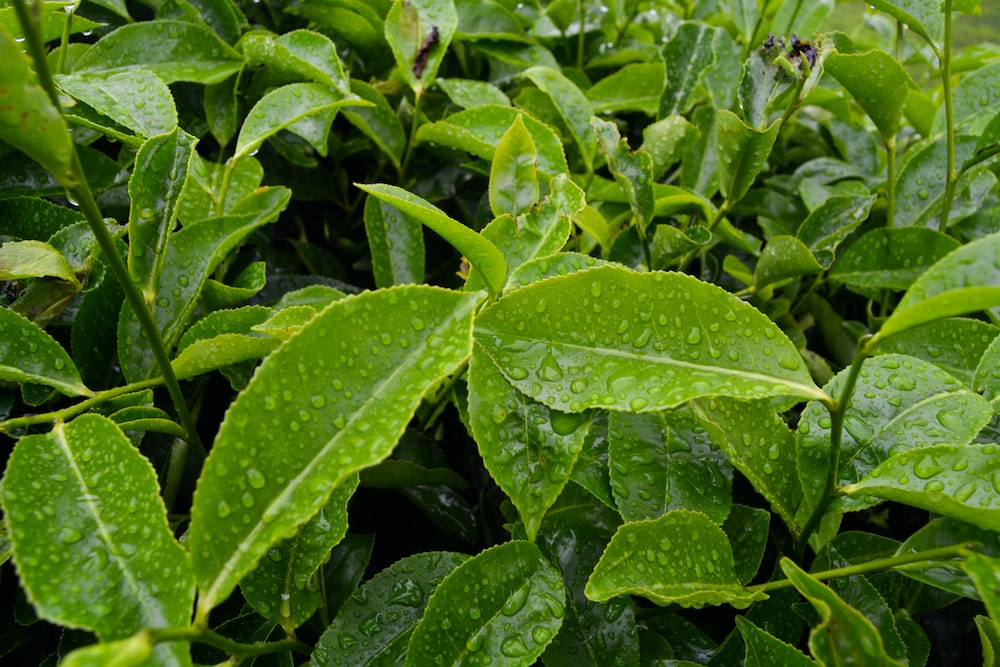
Tea Tree Oil for Acne Scars: Evidence, Side Effects, and More
Share
Tea tree oil, derived from the leaves of the Melaleuca alternifolia tree, has gained popularity in skincare due to its potential benefits for various skin conditions. One area where tea tree oil is often touted as a remedy is acne scars. Acne scars can be a source of distress and can affect one's self-confidence. In this article, we will explore the effectiveness of tea tree oil for acne scars and provide evidence-based information to help you make informed decisions about its use.
Importance of Addressing Acne Scars
Acne scars can be a lasting reminder of past breakouts, and they may take a toll on one's emotional well-being. Addressing acne scars is crucial for restoring the skin's appearance and improving self-esteem. Tea tree oil, with its potential scar-healing properties, offers a natural and affordable solution for those seeking to fade acne scars.
Does Tea Tree Oil Work for Acne Scars?
Understanding the Science Behind Tea Tree Oil's Effects on Scars
Tea tree oil contains several compounds, such as terpinen-4-ol, that possess antimicrobial and anti-inflammatory properties. These properties may contribute to its potential efficacy in improving acne scars. Tea tree oil is believed to promote wound healing, reduce inflammation, and stimulate collagen production, which are essential factors in scar reduction.
Discussing the Limitations and Individual Variations
It's essential to acknowledge that tea tree oil may not work for everyone. Factors such as scar type, severity, and individual skin characteristics can influence the results. It's advisable to consult with a dermatologist or skincare professional before incorporating tea tree oil into your acne scar treatment routine.
Findings on Tea Tree Oil's Efficacy for Acne Scars
Research suggests that tea tree oil may help in fading acne scars by reducing inflammation, preventing infection, and promoting tissue regeneration. Studies have shown improvements in scar appearance and texture when tea tree oil was used regularly over a period of time.
Key Components of Tea Tree Oil that Aid Scar Healing
The primary active component of tea tree oil, terpinen-4-ol, exhibits antimicrobial and anti-inflammatory properties, which may contribute to scar reduction. Additionally, tea tree oil contains antioxidants that help protect the skin from free radicals and support skin healing.
Dilution Guidelines and Application Methods
To safely and effectively use tea tree oil for acne scars, it's important to follow proper dilution guidelines and application methods. Here are the steps to incorporate tea tree oil into your skincare routine:
-
Choose a Carrier Oil: Select a carrier oil that suits your skin type and preferences. Popular carrier oils include jojoba oil, almond oil, coconut oil, or olive oil. These oils help dilute tea tree oil and prevent skin irritation.
-
Dilution Ratio: Mix 1-2 drops of tea tree oil with 1 tablespoon of your chosen carrier oil. This dilution ratio helps ensure that the tea tree oil is not too concentrated and reduces the risk of adverse reactions.
-
Patch Test: Before applying the diluted tea tree oil to your face, perform a patch test on a small area of your skin. Apply a small amount of the diluted mixture on the inside of your wrist or behind your ear. Leave it on for 24 hours and observe for any signs of irritation or allergic reactions. If no adverse reactions occur, proceed with using the diluted tea tree oil.
-
Cleanse Your Face: Start with a clean face by gently washing it with a mild cleanser and warm water. Pat your skin dry with a clean towel.
-
Targeted Application: Take a small amount of the diluted tea tree oil mixture on your fingertips or a cotton swab. Gently apply it directly to the acne scars or areas of concern. Massage the mixture into the skin using circular motions for better absorption.
-
Allow Absorption: Let the diluted tea tree oil mixture absorb into your skin for 10-15 minutes. Avoid touching or rinsing off the oil during this time.
-
Moisturize: After the tea tree oil has been absorbed, apply a moisturizer suitable for your skin type. This step helps maintain the skin's hydration and balance.
Precautions and Considerations for Tea Tree Oil
While tea tree oil can be beneficial for acne scars, it's important to take precautions, especially if you have sensitive skin. Here are some considerations to keep in mind:
-
Start Slowly: If you are new to using tea tree oil, start with a lower concentration and gradually increase it over time. This allows your skin to adjust and minimizes the risk of irritation.
-
Monitor Skin's Reaction: Pay close attention to how your skin reacts to the tea tree oil. If you experience redness, itching, or excessive dryness, discontinue use and consult a dermatologist.
-
Avoid Eye Area: Tea tree oil should not be applied near or around the eyes. It can cause irritation and discomfort. Be cautious when applying the mixture, ensuring it stays away from your eye area.
-
Sun Protection: Tea tree oil can make your skin more sensitive to sunlight. Apply a broad-spectrum sunscreen with SPF 30 or higher before going outdoors, even on cloudy days.
